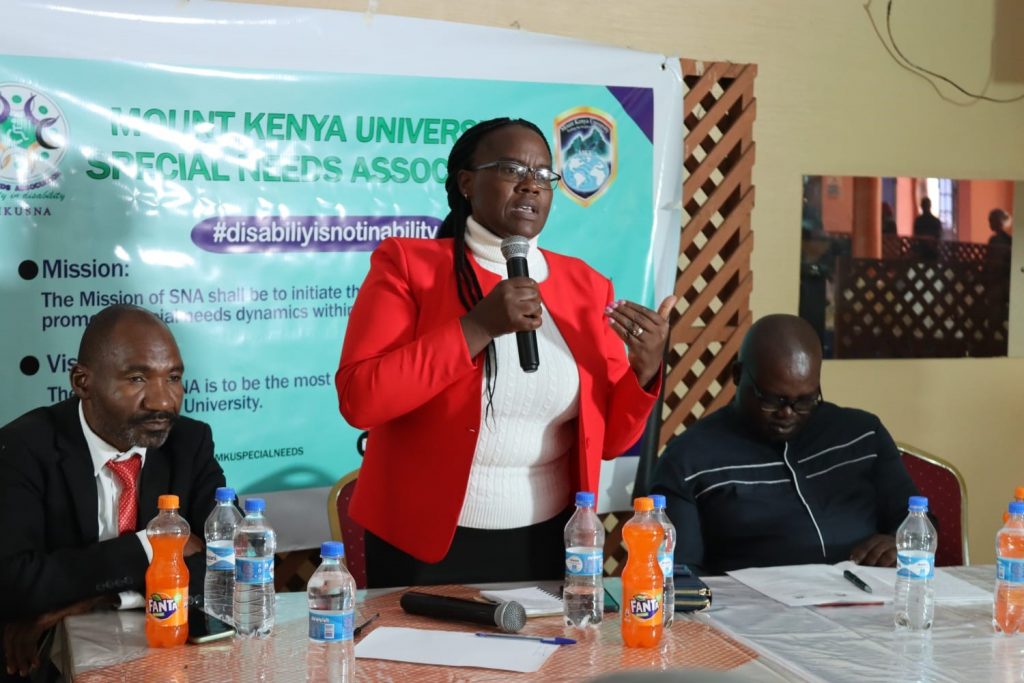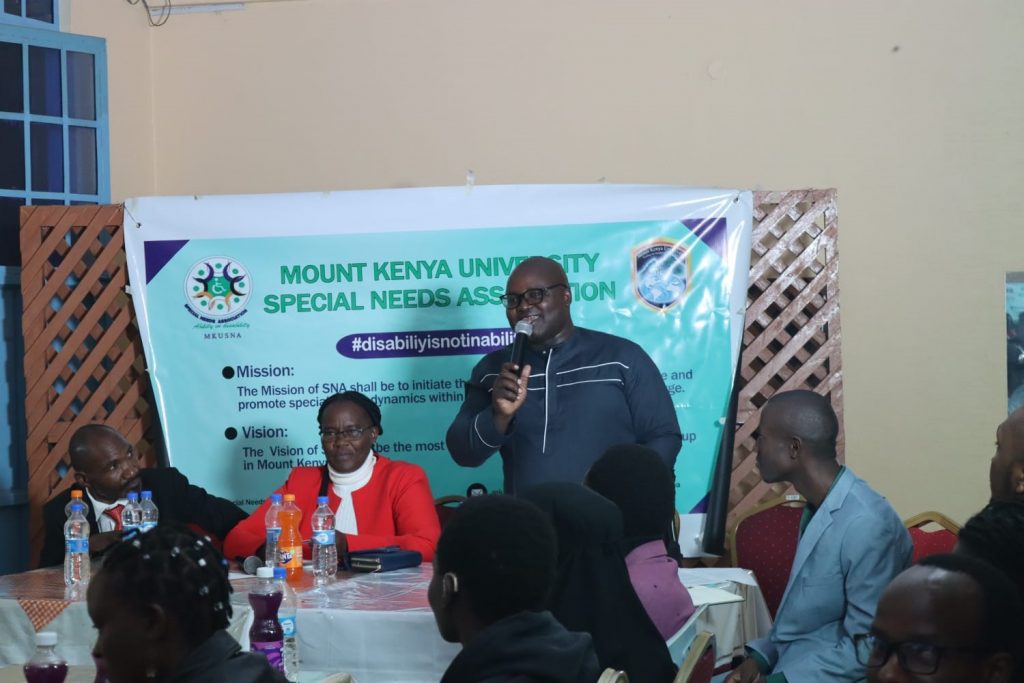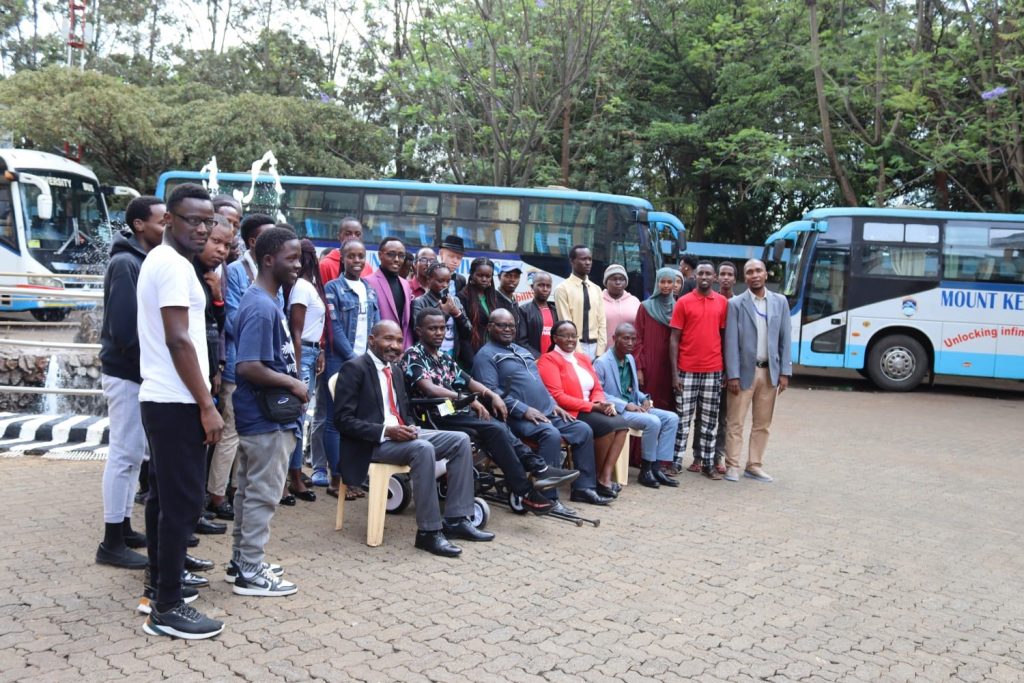Imagine a world where every student regardless of their abilities, has equal access to career guidance and opportunities. Such an inclusive society is not only possible but essential for the holistic development and empowerment of all individuals. Today, we delve into the transformative impact of career talks specifically tailored for enabled differently students, shedding light on the incredible potential and invaluable opportunities that await them.

Dr Serah Kimaru Muchai, Coordinator MKUSNA speaking on career and job placement
During career development process, enabled differently students should write their own curriculum vitae that justify use of appropriate font size and type, text that gives the document clean, crisp edges with content of what the employer should read.
It is also important that the students to always take photos of all the activities they engage in. This will help them to develop cover letters.
The enabled differently students are also encouraged to avail themselves for a range of resources and support networks. Organizations dedicated to their empowerment offer the necessary skills, knowledge and connections to navigate the professional world successfully.
Enabled differently students should be encouraged to seize opportunities that come their way, irrespective of societal preconceptions. It is essential to challenge traditional notions and stereotypes that may limit the aspirations and potential of individuals with disabilities. Inclusivity in hiring practices and workplace environments is crucial to ensure that every talent is recognized and utilized to its fullest extent. However, when they get employed, they should avoid isolating themselves from their staff member and should be willing to work them.
Interview process is important in job placement. Persons with Disabilities are required to dress formally. The most preferable dress code colors are grey, black or blue, the hair should be neat, ladies should put on moderate earrings while gentlemen put on broad tie. Arrangement of documents should be done well beginning with educational documents at the top and other most important documents with the rest of the documents follow. While in the session interview the interviewee should be firm enough while doing introduction.
During interview session, some questions may be indirectly asked making the Person with Disability interviewee’s disability touched. This therefore calls for the panelists to at least have a Person with Disability interviewer who can always help framing such questions before interview sessions.
Moreover, consistently being in touch with referees is a good thing. This helps to ensure that they are informed of your lifetime progress be it location and what you are doing. Not only that but it also helps you to stay informed of their whereabouts.

Kennedy Okong’o, Director Riziki Source [Guest Speaker] speaking on career and job placement
Today, we shed light on the empowerment of differently enabled students in the realm of career development, showcasing the importance of removing barriers and embracing equal opportunities for all. There is need to also increase sign language interpreters in work places for easy access of services by the people having hearing impairments.
By providing adaptable career guidance, educational institutions can actively promote inclusivity. This includes empowering students with knowledge about various industries, job opportunities and strategies for career advancement. Additionally, educators should emphasize the importance of adaptability, perseverance, and a growth mindset, encouraging enabled differently students to view challenges as stepping stones toward success.
Furthermore, fostering entrepreneurship among differently enabled students can empower them to create their own opportunities. By cultivating an entrepreneurial mindset, students can develop unique solutions to address existing gaps in society. This freedom to innovate allows them to contribute their skills while creating a positive impact in their communities.

Speaker {third sit} and Transcriber MKU, John Mwangi {Standing from right}
Persons with Disabilities are encouraged to be self-confident and not to just expect pity or things to align with the way they expect. They should also take the challenges as a normal thing and learn from them instead of getting discouraged or demoralized for whatever disability they have should not be an excuse to learn in order to move from one economic level to another economic level.
Article by:
Daniel Boke Titus,
Chairperson – Mount Kenya University Special Needs Association (MKUSNA)
